Topic: Medals
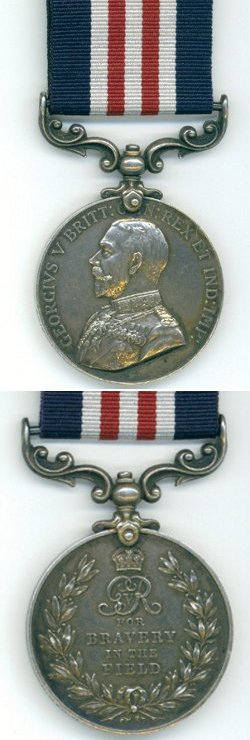 The original text of the Royal Warrant as published in the London Gazette authorisng the intitution of the Military Medal follows:
The original text of the Royal Warrant as published in the London Gazette authorisng the intitution of the Military Medal follows:
THE LONDON GAZETTE, 7 APRIL, 1916
War Office,
5th April, 1916.
Royal Warrant Instituting a New Medal Entitled "The Military Medal."
GEORGE R.I.
GEORGE THE FIFTH, by the Grace of God of the United Kingdom of Great Britain and Ireland and of the British Dominions beyond the Seas King, Defender of the Faith, Emperor of India,
To all to whom these Presents shall come Greeting:
WHEREAS We are desirous of signifying Our appreciation of acts of gallantry and devotion to duty performed by non-commissioned officers and men of Our Army in the Field We do by these Presents for Us Our heirs and successors institute and create a silver medal to be awarded to non-commissioned officers and men for individual or associated acts of bravery on the recommendation of a Commander-in-Chief in the Field:
Firstly.– It is ordained that the medal shall be designated "The Military Medal."
Secondly.–It is ordained that the Military Medal shall bear on the obverse the Royal Effigy, and on the reverse the words "For bravery in the Field," encircled by a wreath surmounted by the Royal Cipher and a Crown.
Thirdly.– It is ordained that the names of those upon whom We may be pleased to confer the Military Medal shall be published in the London Gazette, and that a Register thereof shall be kept in the Office of Our Principal Secretary of State for War.
Fourthly.– It is ordained that the Military Medal shall be worn immediately before all war medals and shall be worn on the left breast pendent from a ribbon of one inch and one quarter in width, which shall be in colour dark blue having in the centre three white and two crimson stripes alternating.
Lastly.– It is ordained that in cases where non-commissioned officers and men who have been awarded the Military Medal shall be recommended by a Commander-in-Chief in the Field for further acts of bravery, a Bar may be added to the medal already conferred.
Given at Our Court at Saint James's, this Twenty-fifth day of March, 1916, in the Sixth Year of Our Reign.
By His Majesty's Command,
KITCHENER.
Total Awards
Approximately 115,000 Military Medals (M.M.) were awarded during the First World War (with 596 first bars, 180 second bars and one third bar). Each bar represented a subsequent award f the same honour. Over 15,000 Military Medals were awarded during the Second World War (with 177 first bars, and one second bar). About 300 Military Medals were awarded between the wars and another 932 with eight first bars since 1947.
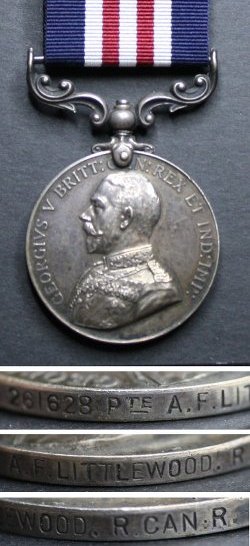 Awards to Canadians
Awards to Canadians
During the First World War; 12,341 Canadian soldiers received the Military Medal. Of these, 830 received a second award and 39 received a third award of the M.M. One of the best known recipients of the MM with two bars was Cpl Francis Pegahmagabow, the most highly decorated Canadian Native in the First World War. He served with 1st Canadian Infantry Battalion of the Canadian Expeditionary Force.
During the Second World War, 1235 Canadian soldiers received the Military Medal. Of these, 10 received a second award and 1 received a third award of the M.M. The sole recipient of the MM with two bars was Regimental Sergeant Major Frank Leslie Dixon, of the Essex Scottish Regiment.
During the Korean War; 53 Canadian soldiers received the Military Medal.
In 1993 the Military Medal was discontinued in the British honours system and the Military Cross became available to all ranks.
The equivalent award to the Military Medal in the modem Canadian Honours system is the Medal of Military Valour. As of 1 June 2012, this medal has been awarded 83 times for actions in Afghanistan.


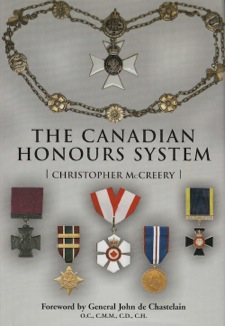 For guidance on wearing of medals and ribbons, see the following guide:
For guidance on wearing of medals and ribbons, see the following guide:
 Over 350,000 Canadians received the
Over 350,000 Canadians received the 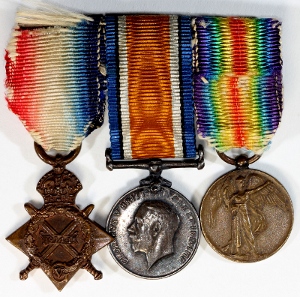

 Militia General Orders
Militia General Orders It was during the first Fenian raids in 1866, that the only Victoria Cross to be awarded for actions in Canada was granted. This award, for an act of gallantry not in the presence of the enemy (which was allowed by the terms and conditions for the VC for a brief period) was earned by
It was during the first Fenian raids in 1866, that the only Victoria Cross to be awarded for actions in Canada was granted. This award, for an act of gallantry not in the presence of the enemy (which was allowed by the terms and conditions for the VC for a brief period) was earned by 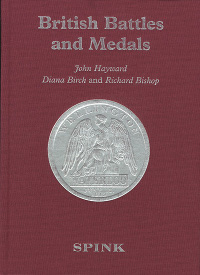 From the excellent British service medals reference "
From the excellent British service medals reference "
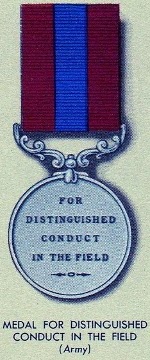 The following Imperial Regulations apply in all cases where medals have been granted to miltiamen in Canada:—
The following Imperial Regulations apply in all cases where medals have been granted to miltiamen in Canada:— Special Provisions for the Victoria Cross
Special Provisions for the Victoria Cross
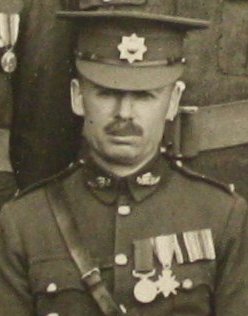

 The first medal that many Canadian soldiers might have been eligible to receive for their First World War service was the
The first medal that many Canadian soldiers might have been eligible to receive for their First World War service was the